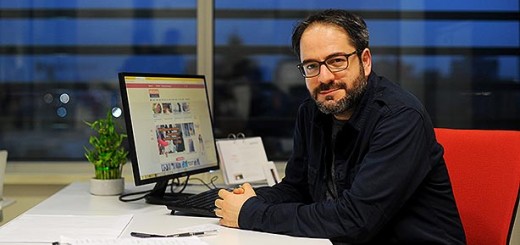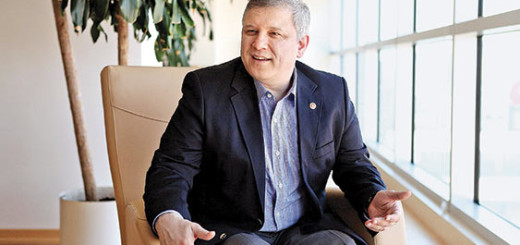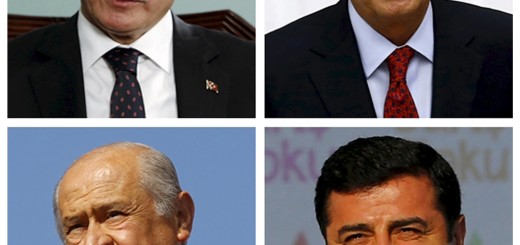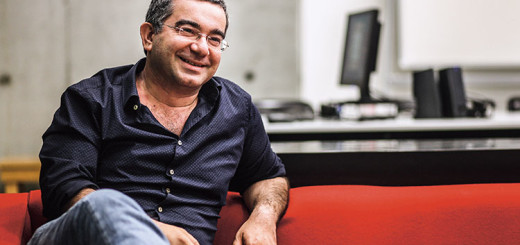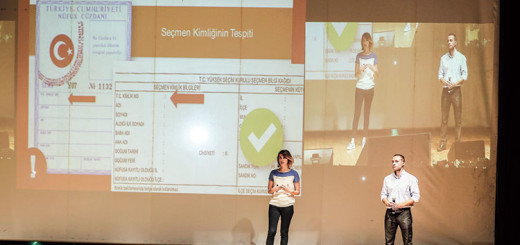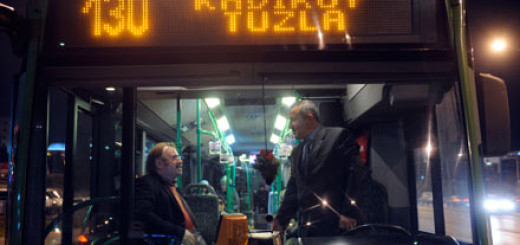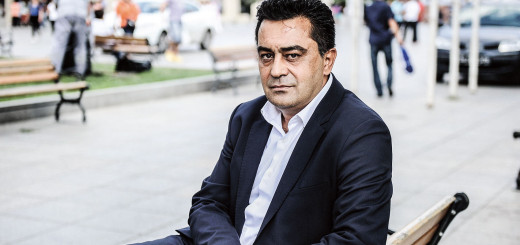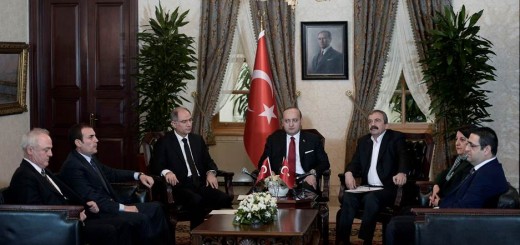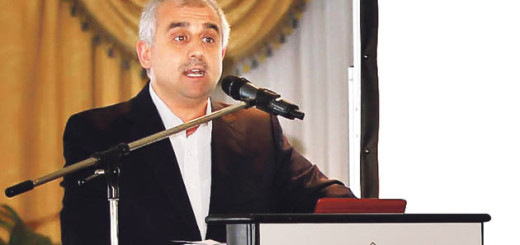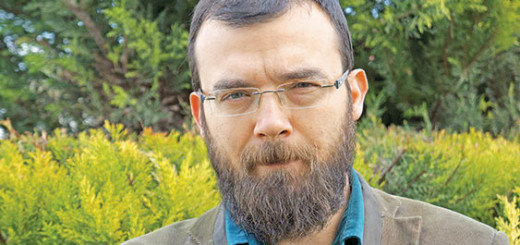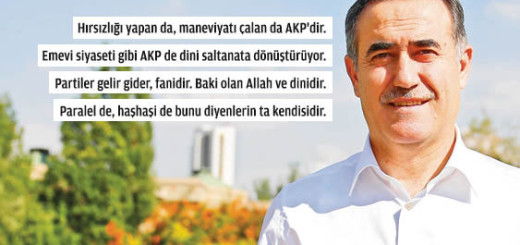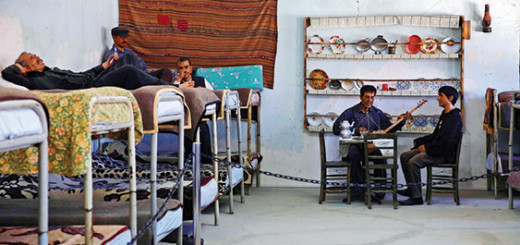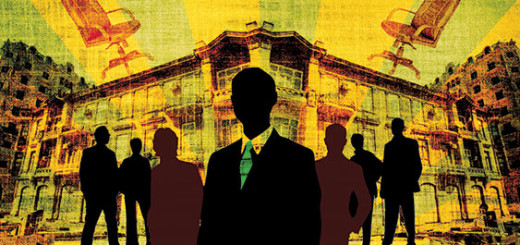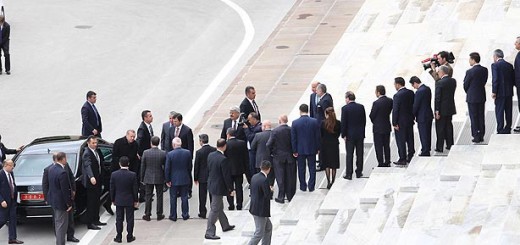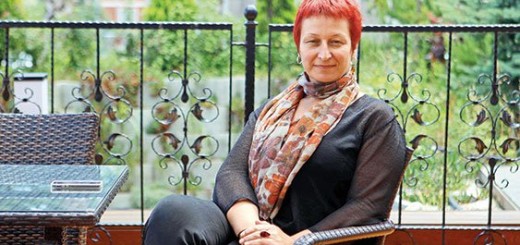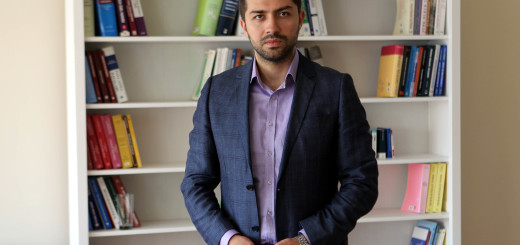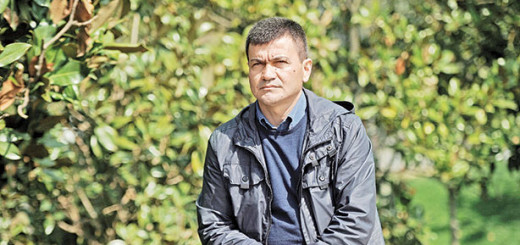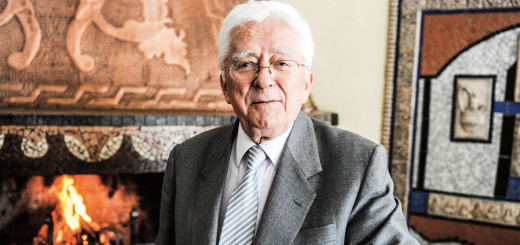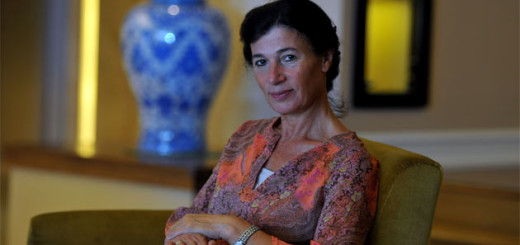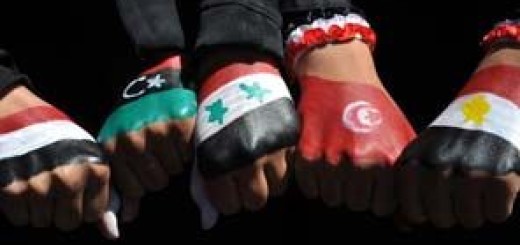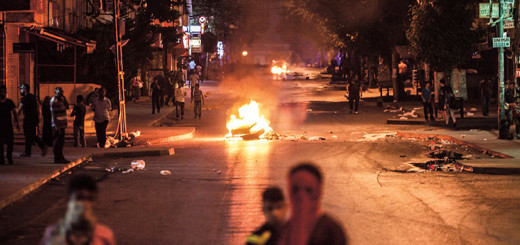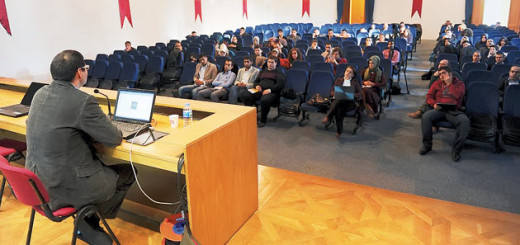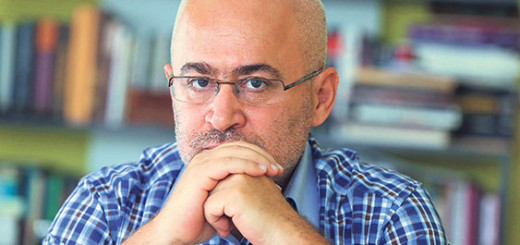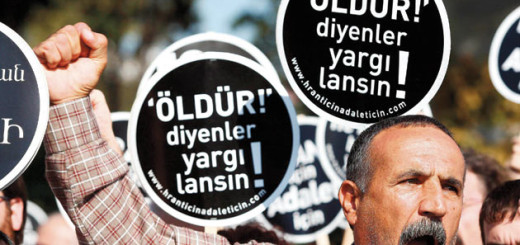
Doğan Ertuğrul (Photo: Üsame Arı, Today’s Zaman)
After deciding that the Star daily, where he worked as managing editor, was using too much hateful language, Doğan Ertuğrul decided to throw in the towel and resign from his position there.
Catching up with the former managing editor, who is an expert on Iran, Today’s Zaman spoke to him about the hateful discourse used by the Justice and Development Party (AK Party), how it is echoed in the media, the bribery investigation which began on Dec. 17 and how ministers in Turkey are tied to Iran.
Noting that the government’s divisive language has gone as far as saying, “Don’t send your children to those schools [run by the Hizmet movement]” or “Members of the parallel state shouldn’t be riding the Marmaray,” Ertuğrul said the Star daily tried to handle this whole period where the government took the Hizmet movement head on in as balanced a manner as possible but the “whole business just got out of control.”
Why did you resign from your job as managing director at the Star newspaper?
I worked at Star for seven years. The newspaper has played an important role in terms of informing the public. It made some brave moves, took some brave stands. But you know what they say, “All good things must come to an end.” When the Gezi protests took place, the position held by Star became different. We had many arguments during our publication meetings. I personally asserted that it was not necessary to stand with the state and that certain factions and groups of society should not be criminalized by the press.
I had said over and over that Star needed to approach society in a style that was the opposite of what we saw in the prime minister’s post-election balcony speech. This was a sign of the coming separation.
The lack of harmony that emerged with Gezi must have been triggered during the election campaign period…
All election processes are difficult to some extent. Once again in Turkey, we watched as the elections turned into a period of absolute lunacy. We are still engulfed in that lunacy today. Of course, such periods — election processes — always wind up polarizing societies but they had never reached such dangerous levels before. Clashes began between the government and a social movement — the Hizmet movement — with whom it had been very close up until just recently. These clashes carried over to campaign rallies and large meetings. When the ruling AK Party, some 11 years in power, declared a civil group the enemy, it was first and foremost a hate crime. This crime went as far as the government saying, “Don’t send your children to those schools” or “Members of the parallel state shouldn’t be riding the Marmaray.” This is, after all, a prime minister saying these things. We tried to handle this whole period in as balanced a manner as possible but really, the whole business just got out of control.
Did it take you this long to resign because you somehow thought the rhetoric of hatred would change?
Yes. And I brought all this up when I resigned. When I handed in my resignation, I spoke about how I was no longer the right man for Star even though I had worked there for years. And how working at the newspaper had become too much of a weight on my conscience. And no doubt, there are countless other journalists like me, working at different newspapers or media groups who see the same lunacy and see all the same problems I did. But many of them are worried about their incomes, about making money. Resigning really brings it to a new level altogether.
Now we have the Turkey of Tayyip Erdoğan
Oppression has been reflected onto social media. Twitter and YouTube are open for now but the fear now exists that one day, we might see the entire Internet being shut down… After focusing on a certain power center, the ruling party has now embraced banning things. It is quite clear that the AK Party rule has turned into a party of personal rule. Now we have the Turkey of [Recep] Tayyip Erdoğan. We see this Turkey reflected frequently in the media which belongs to the ruling government. And this is not bringing us towards a more liberal, freedom-loving Turkey. We cannot accept a country whose shape is modeled around its leader alone, a country which depends on whatever the prime minister says. He has moved in anathema to what a freer, more democratic Turkey needs. And he has on his own made Turkey pass up on its goals. Which is why he doesn’t even have the right to ask why it is that those who used to support him no longer support him.
Some are calling this election a victory for “perception and dark propaganda.” What do you think?
There is of course no doubt that the ruling party has carried out some very serious engineering of both perception and society as a whole. It controls a significant portion of the media in the country. At the same time though, one needs to be realistic. The election results cannot be explained away simply by talking about the careful direction of perception. After all, the ruling party promised and continues to promise economic prosperity. And though much of society doesn’t understand just what it is, many people do not want to see the peace process damaged. In Turkey, we have the leadership of Erdoğan. Alongside this, the real subject at hand is how the AK Party will lead the country with 40-45 percent of the vote behind it.
Around the time when the election results were becoming clear, the prime minister headed out onto the balcony to make his speech surrounded by a group of people. Had he used a more constructive rhetoric out there on the balcony rather than referring to those who did not support him the way he did, there might be hopes for a different kind of Turkey now.
Does this rhetoric of hatred win anything for the prime minister?
This was an election strategy for the prime minister. And this is the kind of language which he is familiar with. We’ve seen that it has worked for him up until now. But the direction in which it is taking us is towards a country that is not led in a very open manner. You can’t lead society by saying: “Half of Turkey supports me. It doesn’t matter whether the others do; in fact, they can leave the country altogether.”
Is the objective herein to continue the tension on purpose, with the target being the upcoming presidential election and then the general elections?
It clearly seems that way. Just as we saw with the local elections, Erdoğan is a master of directing tension and polarization to his benefit. At the same time though, he doesn’t see the reality is that this will only leave him with a Turkey that cannot be led, cannot be ruled. It is possible that bringing about almost civil war-like conditions in Turkey may be to the advantage of the ruling party but it definitely makes society more difficult to lead later on.
The foreign press opined that the AK Party victory foretells “more oppression.” What future do you think awaits this country now?
The prime minister saw the Hizmet movement as an uncontrollable social power, one with great reserves. It did not surprise me at all that this separation, which of course happened before the elections, led the prime minister to declare the Hizmet movement a mass terrorist organization and send a signal that operations against it would begin soon. I do hope this does not happen, but I had actually said months ago that there would certainly be an operation against schools and foundations belonging to the Hizmet movement. After all, this would be a show of power. And Prime Minister Erdoğan does not know any kind of politics other than arm wrestling. It has been precisely this kind of arm wrestling that has brought Erdoğan so much success up until now.
In the black money traffic directed by Iran, Turkey is guilty
You lived in Iran for many years and are in fact an expert on Iran. How do you interpret recent allegations that the events currently unfolding in Turkey carry the fingerprint of Iranian involvement?
One really needs to do a strong analysis here of the ruling party’s political rhetoric. There was great insistence on bringing the Israeli issue to the table, especially when arguments involving the Hizmet movement began. The AK Party knows there is great response to this rhetoric, especially among National View (Milli Görüş) and Islamicist factions. The strategy of tying the Hizmet movement and Israel together side-by-side as an issue was brought forward by both the ruling party and the media. This is actually a form of camouflage. The ruling party brought about polarization to damp down something else together.
In other words, it tried to cover up an alliance with Iran by using an Israel- Hizmet movement camouflage?
Well, you really have to know Iran well to understand this. And unfortunately, Turkish politics do not understand Iran. A 29-year-old Iranian “businessman” who came to Turkey when he was 25 takes on Turkish citizenship. And for years now, this businessman has been involved in bribery-based relations with at least four government ministers.
Alright, so was it ever possible that Iranian officials didn’t really know about this all?
It is absolutely not possible at all that Iranian state offices or its intelligence did not know about an Iranian businessman who was busy handing out bribes to Turkish government ministers. This being the case, when Erdoğan talks in city squares and rallies about national interests being threatened, he is not talking about the recorded conversations but really about something else. At least four government ministers were bribed by an Iranian businessman who was busy trying to launder black money. What this really means is that the reins to at least four government ministers in Ankara really lie with Iran.
What do you think the Iranians think of this all?
I did speak to many Iranians around the time this was happening. Many of them said they weren’t sure whether Reza Zarrab was really Iranian, that he might be Azerbaijani or a Turkish citizen. Of course, the truth did in fact come out. Later, a man said to be his partner, Babek Zencani, was arrested in Iran. Right now, the new Iranian leadership, which has struck nuclear agreements with the West and America, is trying to eliminate the old leadership as carefully as it can in order not to mess up these new developments. The money laundering, which was allegedly done to break down the embargoes of the Mahmoud Ahmadinejad era, are now being brought before the courts as though they have nothing to do with the new leadership. In all the black money traffic directed by Iran, Turkey is stuck in a criminal position. Iran has removed itself from the whole business by claiming it is busy cleaning house. Iran did all of this not just with Turkey, but also with Dubai, Malaysia and Tajikistan. It actually set up a serious flow of black money with various businessmen in order to get around the embargoes. And one of the key names in this all was Reza Zarrab.
This is what the allegations and the investigations all point towards. One would really have to be quite naïve to try and claim that any of this happened without the knowledge of Iranian state offices. To say that Iran, which has developed to the very furthest extent its ability to direct regional operations, was not involved with this businessman who is now so tied up with the Turkish ruling party and government is simply naïve.
Is Iran, with its new leadership and political strategy, trying to be a game changer in the region?
Iran has a set of politics that are constantly in motion, with a wide variety of options and maneuvers at hand. It is a very successful form of politics for Iran but very risky for the region as a whole. It is quite upsetting to see the deficiencies of Turkish politics and the Turkish Foreign Ministry when it comes to dealing with Iran. Right now, by carrying out a very balanced, moderate kind of politics, without much in the way of clashes, Iran is both carrying out a domestic clean up, as well as presenting a new set of politics and a new image in the region. And while doing this, all the sins of the old leadership are being brought forward and put on view, while being cleaned up. And as the new ruling powers receive applause for this, the power of all this dirty money is being seen in other countries.
There is no doubt things similar to what we have seen here in Turkey will also take place in both Tajikistan and Malaysia. Iran is a country which Turkey and other countries in this region need to follow very closely. As I said, it is sad and worrisome to see how weak the hand of the Turkish Foreign Ministry is when it comes to the Middle East and Iran in particular. One Iranian diplomat, referring to Turkish Foreign Minister Ahmet Davutoğlu, said: “Our Turkish colleagues tell us, ‘We know Syria like the back of our hands.’ I don’t know whose hand they are talking about but it is certainly not Syria’s.” They are unfortunately right.
The Syrian crisis really highlighted the fact that Turkey did not know Syria well, nor did it have a good sense of its own power limitations. Turkey even seemed to think it would be able to link up arms with Iran and carry out a regime change in Syria, the most indispensable country in the region, according to Tehran.
